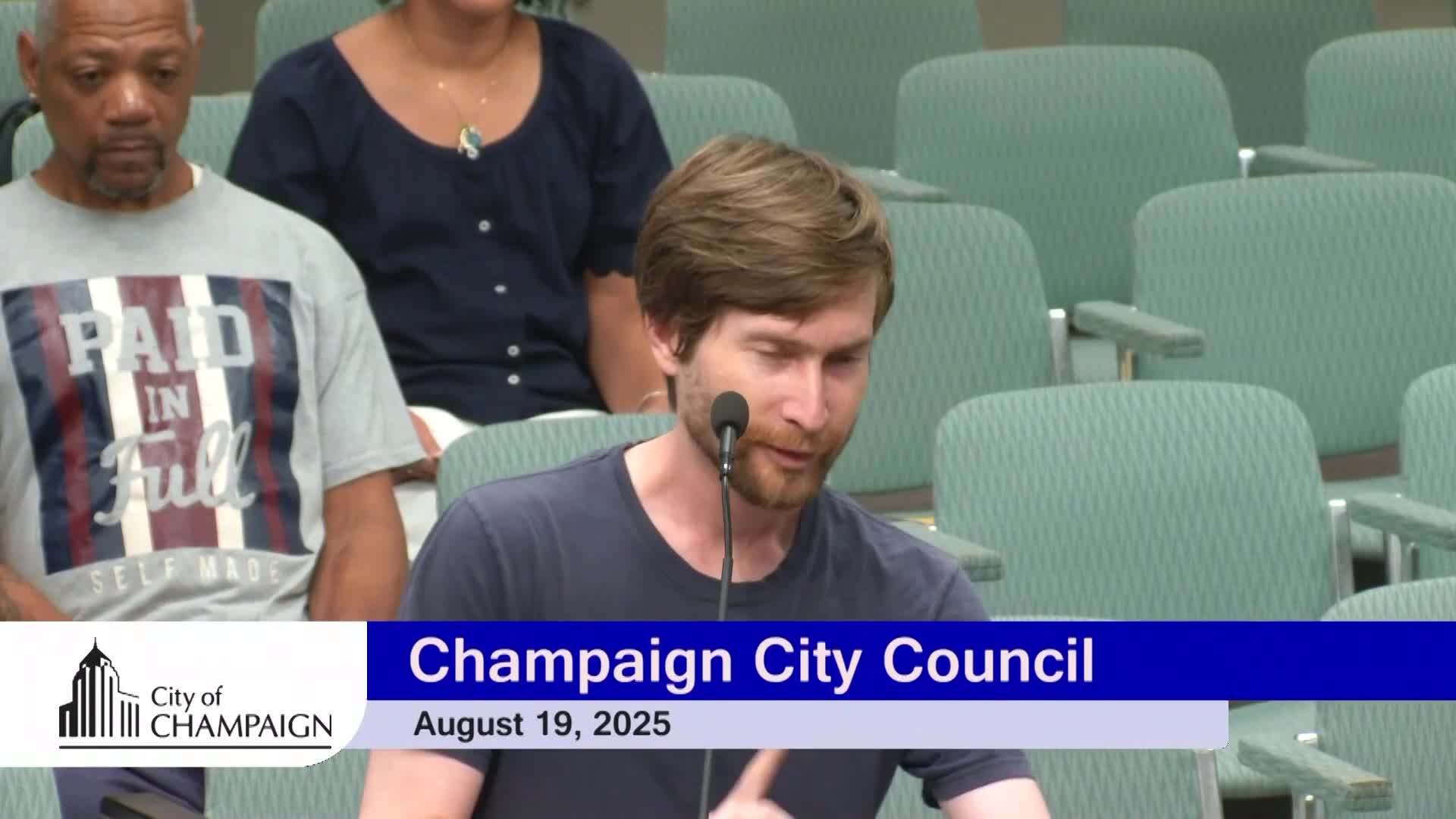Article not found
This article is no longer available. But don't worry—we've gathered other articles that discuss the same topic.
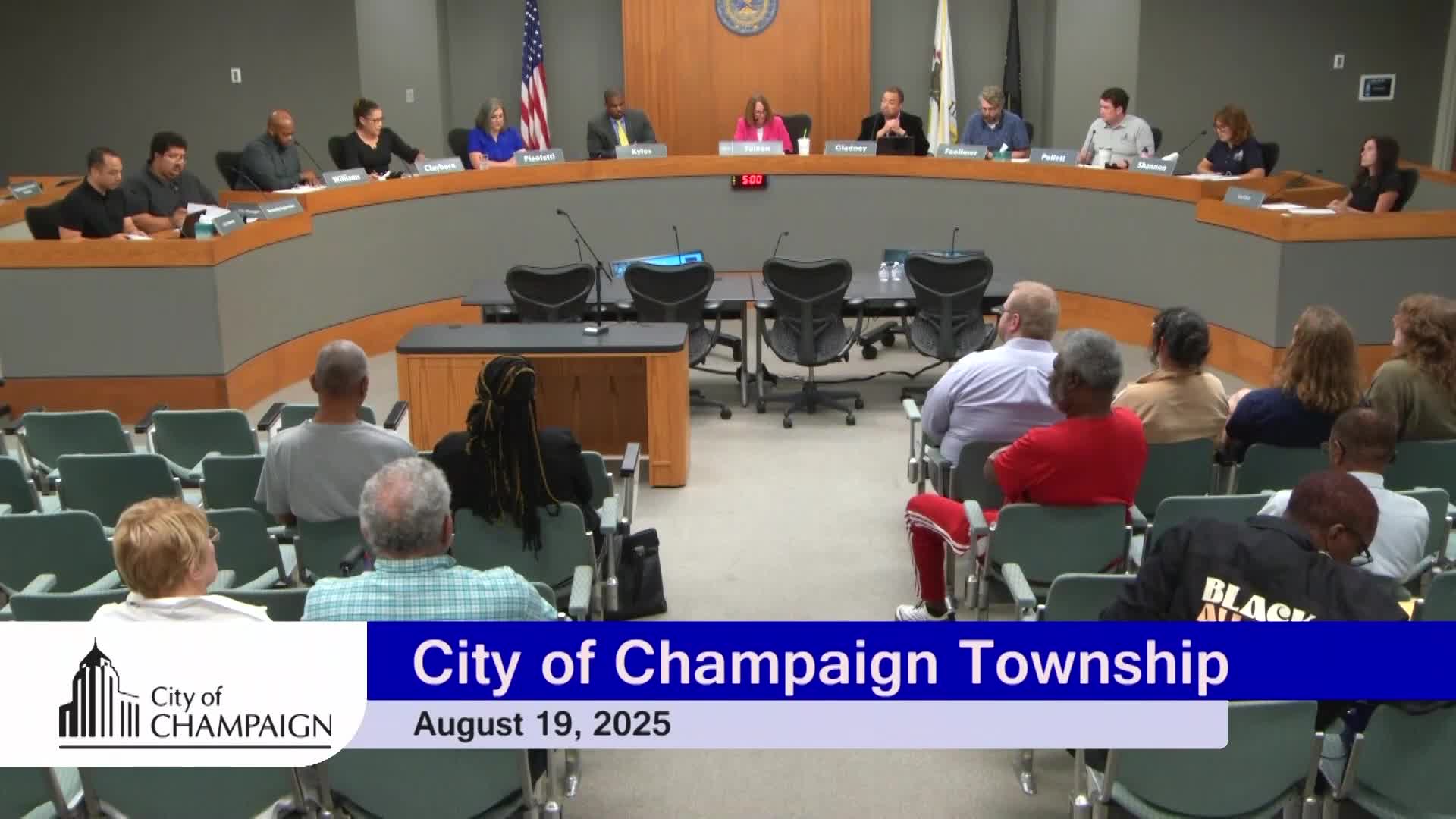
Champaign Township board tables preliminary budget amid questions over Strides shelter finances and management
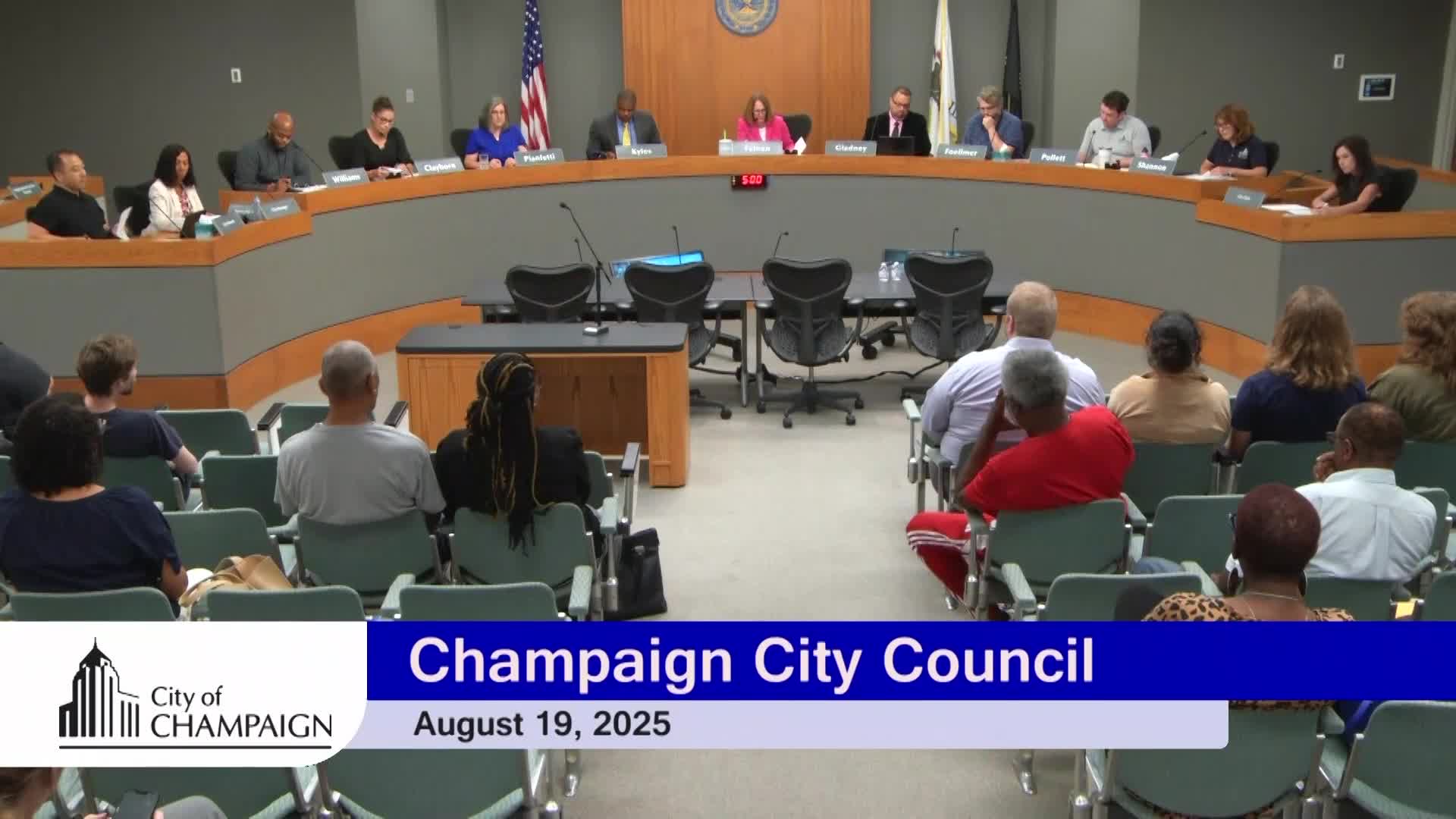
Council approves three procurement items and routine payments totaling millions
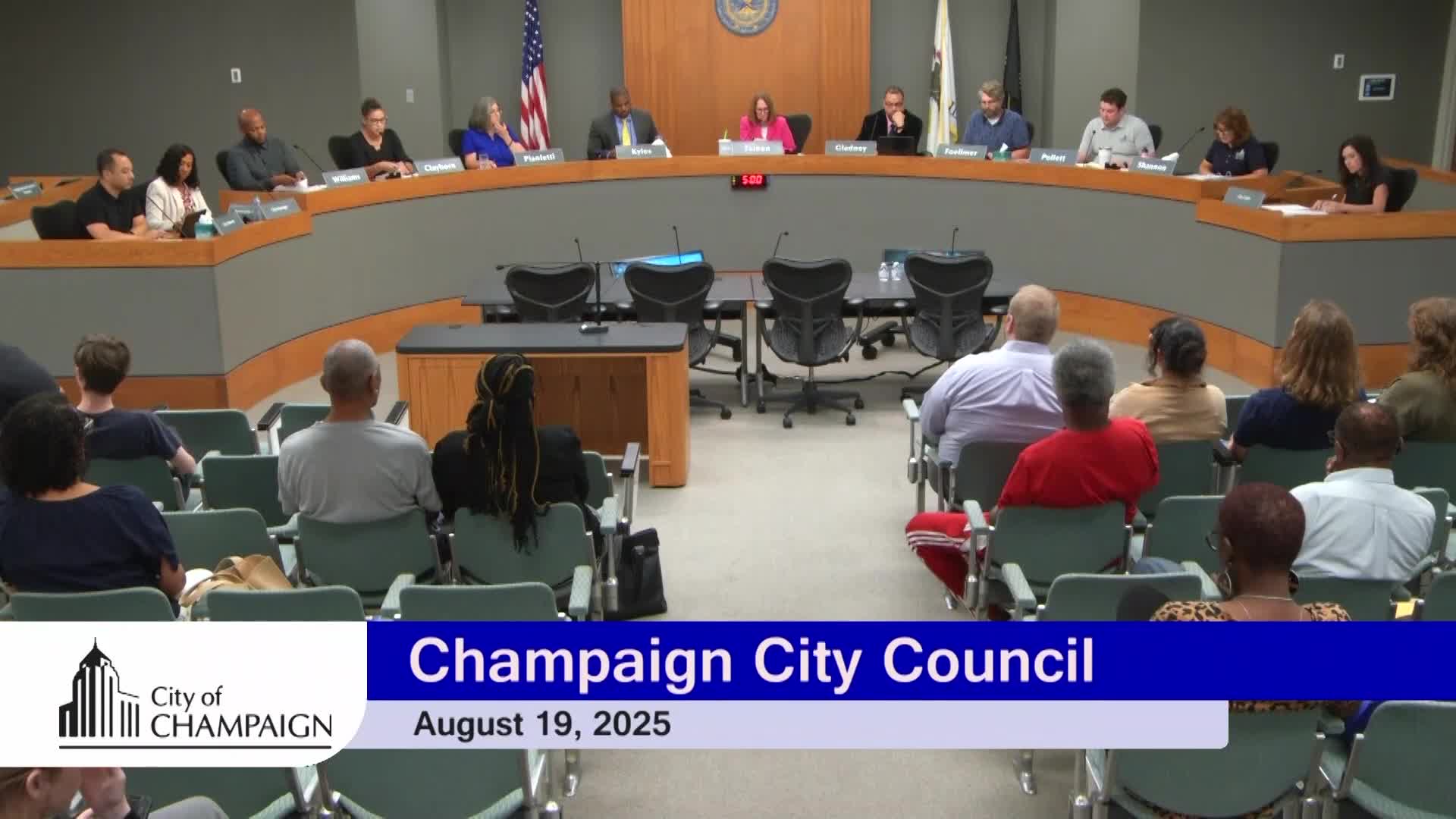
Council rezones two South Mattis Avenue lots to allow low-density multifamily development; neighbor voices support
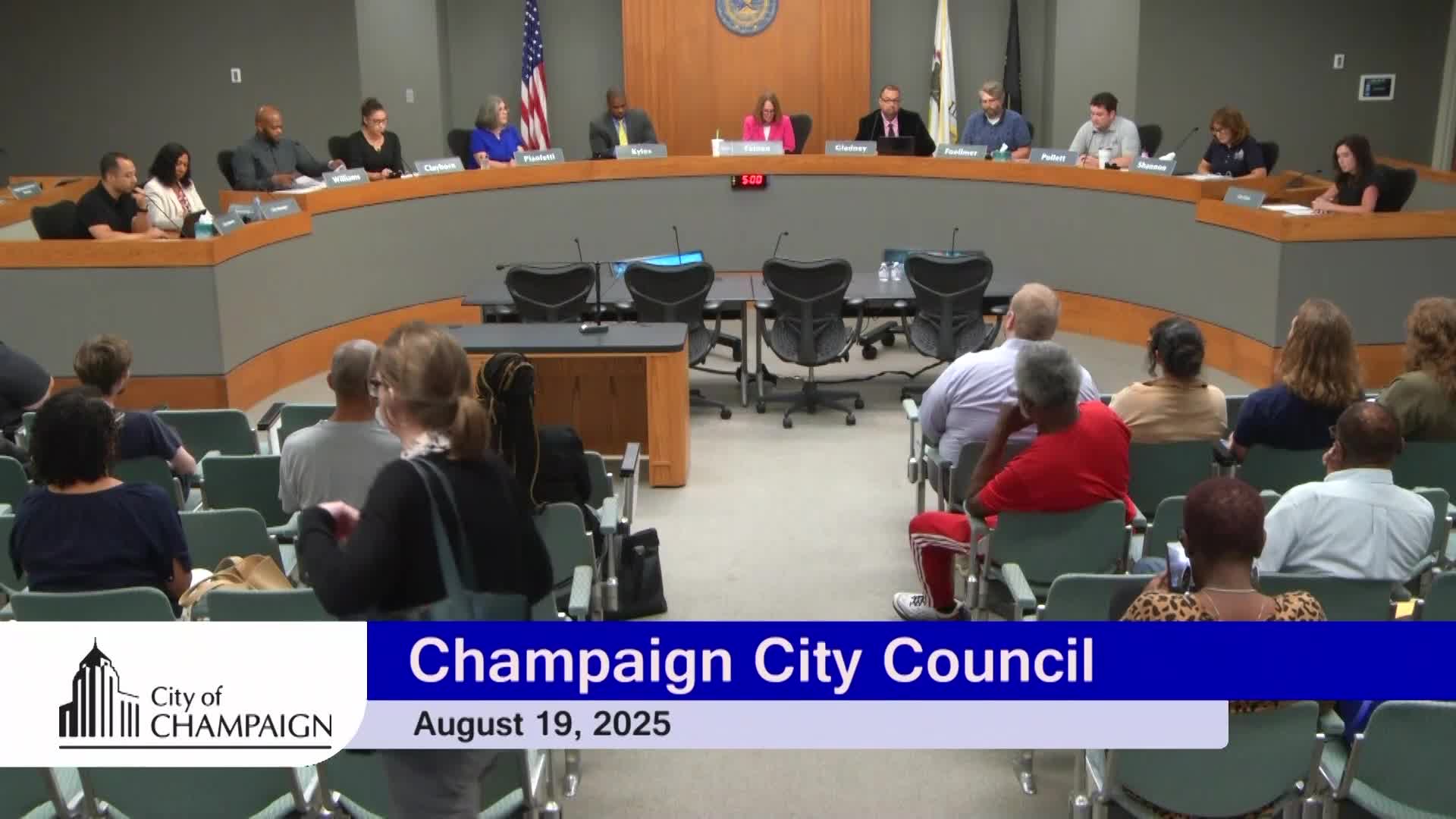
City approves $90,500 contract with RDG for housing-needs analysis; councilmember seeks short-term rental review
